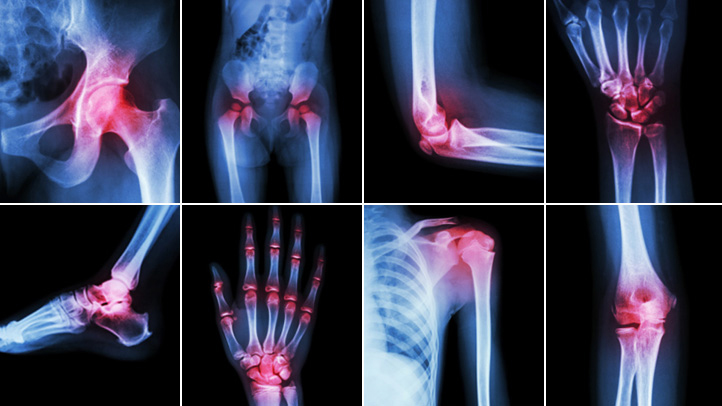Rheumatology is the science dealing with muscles, bones, joints and the skin. Thus, it is the speciality of medicine dedicated to disorders of the musculoskeletal system. Rheumatological disorders range from chronically disabling arthritis and critical illnesses involving multiple organs of the body down to milder but nagging and persistent illnesses such as chronic back aches and neck aches due to occupational hazards such as teaching, farming or long hours on the computer.
Most people with any kind of joint pains go to an orthopedic surgeon. This is a mistake. Orthopedic surgeons, as the name indicates, are surgeons; they operate on fractures and perform joint replacements and cartilage tears. Their training is in repair of broken or damaged bony structures. Orthopedic surgeons are NOT trained in dealing with arthritis or osteoporosis etc. These disorders are dealt with by Rheumatologists, who are specialists trained in dealing with and managing these Rheumatic diseases, which are essentially “Auto-Immune” in nature. “Auto” meaning “Self” and “Immune” relates to “Immunity” (“Rog Prati-kaarak Shakti”). Rheumatic diseases result from malfunction of your own body’s immunity. Your immunity, which is designed to protect you, “malfunctions” and instead starts harming you. Why this happens, and that too only in some people, is still not well understood and is a subject of intense worldwide research. The part or organ of the body, where the immune system “attacks”, becomes inflamed and if not treated on time, the inflammation causes damage of that particular organ of the body. Any organ of the body can be affected by auto immune disease.

We know that there is a genetic predisposition for rheumatic diseases. Why only certain members in a family are affected and not all the family, is not well understood. Studies are ongoing. A few examples of such Auto-Immune diseases are:
1) The joints (e.g. “Arthritis”. Again there are different varieties of Arthritis such as Rheumatoid Arthritis, Ankylosing Spondylitis or Psoriatic Arthritis etc)
2) Skin (e.g. Scleroderma or Systemic Sclerosis)
3) Muscles (e.g. Dermatomyositis/Polymyositis)
4) Eyes (e.g. Uveitis)
5) Lungs (e.g. Interstitial Lung Disease)
6) Kidneys (e.g. Glomerulonephritis)
7) Intestine (e.g. Ulcerative Colitis)
8) Blood vessels: arteries and veins
9) The Brain (e.g. Encephalitis, CNS Vasculitis)
In certain diseases, many of the organs may be affected simultaneously such as the Skin, joints, Hair, kidneys, brain and even the heart. There are many more diseases however this was only to drive home the point that any organ of the body can be affected. |